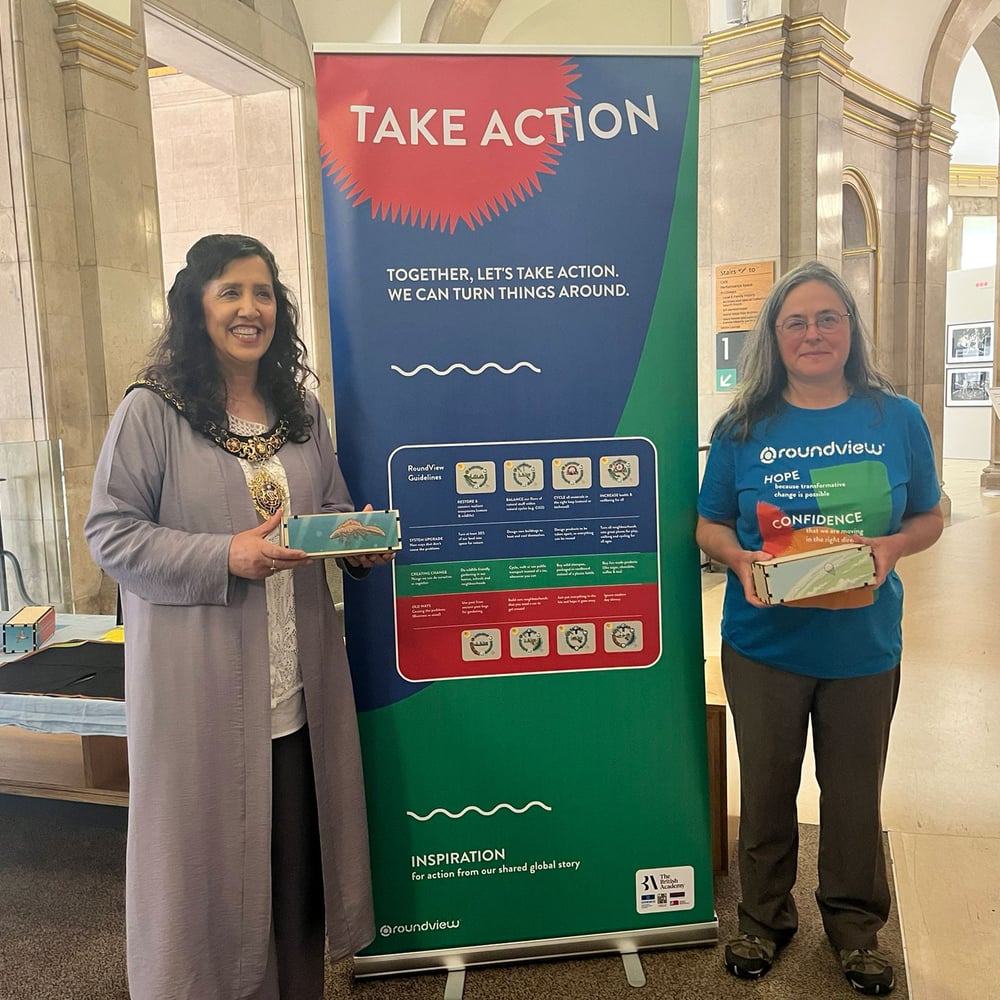
Amplifying sustainability learning through libraries and community learning with Manchester: A UNESCO City of Literature
UK National Commission for UNESCO – June 30, 2023
10 min read

We have been working on a British Academy Innovation Fellowship to develop innovative new ways to activate the UN Sustainable Development Goals with Dr. Joanne Tippett of The University of Manchester. This fellowship is developing and testing new ways to inspire sustainability action with the RoundView, a science-based framework for sustainability learning, visioning and decision-making.
There was an exciting new development this June, when innovative hands-on learning tools were featured in the Festival of Libraries, with project partner Manchester: A UNESCO City of Literature.
These learning tools combine science, art, and word games into three-dimensional puzzles to allow self-guided exploration of the RoundView. They feature poetry written by John McAuliffe, the Co-Director of the City of Literature, and Joanne. The poems emerge as the three-dimensional puzzles are pieced together.
Early discussions with the City of Literature identified the potential for libraries to act as a catalyst, with the learning tools available as a central, shared resource for school and community groups, who would otherwise struggle to access them. Funding from Sustainable Futures at The University of Manchester enabled RoundView installations to be set up for the Festival of Libraries in Manchester Central Library and a neighbourhood library in Trafford (Urmston).
The funding also allowed for researchers to staff the stalls during the week-long festival, enabling discussions about the RoundView and the learning tools with over 100 visitors, including the Lord Mayor of Manchester. It has been really interesting to watch visitors of all ages interact with the resources, to hear the discussions among families about what they can do, and to read the comments about ideas for a sustainable future that have been written by visitors to the libraries. Feedback has been very positive, with comments including:
“I really appreciate this. It is so important for the younger generation to learn about environmental responsibility.”
“This is really nice. Obviously a very important thing, the games provide kind of a unique perspective. Makes you think in a different way – kind of eye-opening.”
“It’s clear how kids just rush to the games and get themselves involved. A good way to engage and spark a conversation.”
“The game is fun. The poem at the end was a delight – the game looks good for kids and adults.”
Encouraged by the success of this trial, the next steps are to explore lessons learned for a wider roll-out, and to explore how libraries might be able to use this learning innovation as a tangible resource to support sustainability learning in their neighbouring schools.
Share this via…

